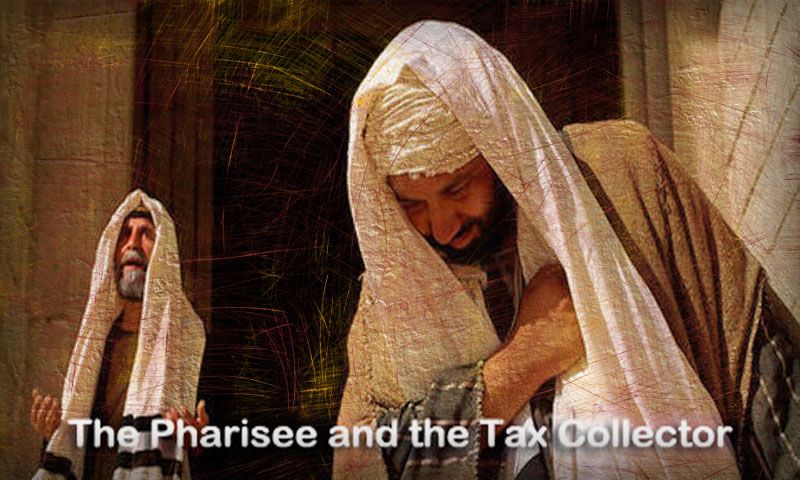I tell you, he will give justice to them speedily. Nevertheless, when the Son of Man comes, will he find faith on earth?” ~ Luke 18:8
According to this, true faith will be mostly rare when He returns, as it was during Noah’s time (Luke 17:26), when only eight people were saved. Before His return, there will be persecution, apostasy, and unbelief (Matthew 24:9-13, Matthew 24:24). Is it rare for you to converse about Jesus Christ with other people during your day or is it rare?
He also told this parable to some who trusted in themselves that they were righteous, and treated others with contempt: ~ Luke 18:9
This parable is rich with truth about the doctrine of justification by faith. It illustrates perfectly how a sinner who is utterly devoid of personal righteousness may be declared righteous before God instantaneously through an act of repentant faith. The parable is addressed to Pharisees who trusted their own righteousness (Luke 18:10-11). Such confidence in one’s inherent righteousness is a damning hope (Romans 10:3; Philippians 3:9), because human righteousness—even the righteousness of the most fastidious Pharisee—falls short of the divine standard (Mat_5:48). Scripture consistently teaches that sinners are justified when God’s perfect righteousness is imputed to their account (Gen 15:6; Romans 4:4-5; 2Co 5:21; Philippians 3:4-9)—and it was only on that basis that this tax collector (or anyone else) could be saved. ~ MacArthur Bible Commentary
Humble thyself in the sight of the Lord.
And He (And He) shall lift (shall lift)
You up (higher and higher)
And He (And He) shall lift (shall lift) you up.
Up into heaven.
Truly, I say to you, whoever does not receive the kingdom of God like a child shall not enter it.” ~ Luke 18:17
Become as little children is how Jesus characterized conversion. Like the Beatitudes, this verse pictures faith as the simple, helpless, trusting dependence of those who have no resources of their own. Like children, they have no achievements and no accomplishments to offer or with which to commend themselves. ~ MacArthur Bible Commentary
Read / Listen
Joshua 13:1-14:15
Luke 18:1-17
Psalm 85:1-13
Proverbs 13:7-8
New Testament
Luke 18:1-17
The Parable of the Persistent Widow
The Pharisee and the Tax Collector
Let the Children Come to Me
The Pharisee and the Tax Collector

The Pharisee and the Tax Collector
Overview: Luke 10-24 Click Here to Watch Video
Now all this talk about the kingdom then raises a very basic question: How does one get into this kingdom? How is one made right with God? How is one reconciled to God? That is the big, big question and that is the question our Lord answers in this simple story. How can a person be right with God? This is not a new question. This is a question that plagued and haunted the people of the earliest biblical era. Back in the book of Job written in the patriarchal period, Job chapter 9, verse 1, Job answered in truth, “I know that this is so but how can a man be right with God?” How can we be righteous before God? How can we be justified before God? How can it be?
And there are some compelling reasons why the question is not easy to answer. It is not easy to answer because we know for certain that no person, no one of us, can on our own achieve this righteousness and they understood if they understood the Old Testament at all that this is a biblical truth. There was no way that a sinner could be righteous on his own, for the Scripture says the heart is deceitful above all things and desperately wicked and the prophet also said that all our righteousness is as filthy rags. The dilemma then is if we are sinful and God demands righteousness, how can a man be right with God? How can we be justified? ~ John MacArthur
Views: 9



